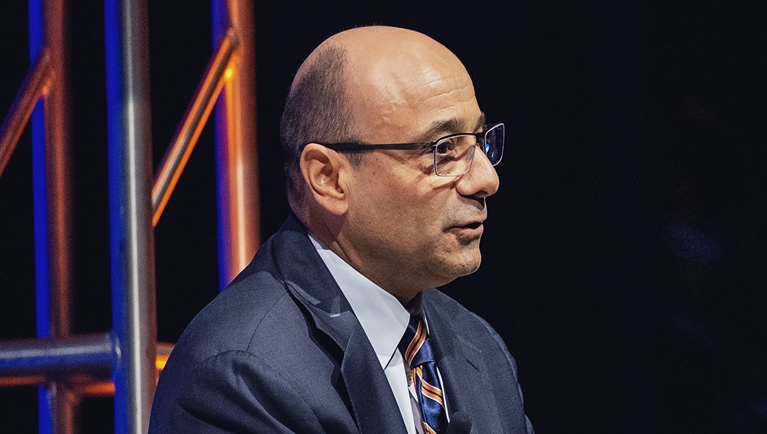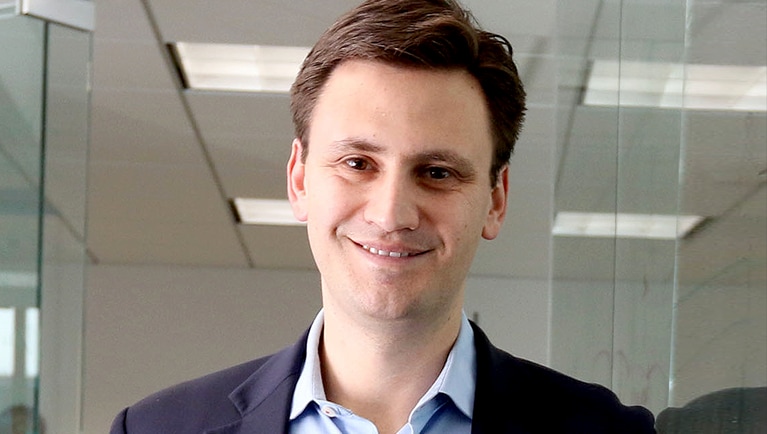Society’s expectations for business are rising. Customers—particularly younger ones—want to know what the companies they engage with are doing for, with, and to the world. Nine in ten Generation Z consumers believe that companies have a responsibility to address environmental and social issues. Younger people think that environmentally and socially focused companies are better prospective employers, and the vast majority say they would be more loyal to companies aligned with those values.
As demands for social accountability rise, so do demands on leaders. This article, based on a range of McKinsey research and case studies of leaders in action, provides a glimpse of the emerging new leadership imperative. Sometimes it’s about boosting transparency—for example, the moves a few fashion- and consumer-oriented companies are making. Empathy also looms large, as shown by new McKinsey research based on surveys and interviews with a group of fellows at Ashoka, one of the world’s leading communities of social entrepreneurs.1 Also critical: a sense of meaning, say two CEOs who recently described their work during a panel discussion marking the 50th anniversary of Pepperdine University’s Graziadio Business School. Transparency, empathy, and meaning—timeless and increasingly timely—are all starting to define a new leadership benchmark.
Transparency
A McKinsey report from last year—The State of Fashion 2019, written in partnership with The Business of Fashion—offers one lens on socially demanding consumers.
The data make clear that today’s shoppers care deeply about the social impact of the companies they patronize. They are also willing to dig, often deeply, into the provenance of products they’re considering, to assure themselves that these products meet a desired social aspiration. Some two-thirds of consumers around the world say they would switch, avoid, or boycott brands for their stances on controversial issues. What’s more, 52 percent of millennials say that they always research background information before buying goods or services, compared with 45 percent of Generation X consumers and 41 percent of baby boomers. One response is transparency, as the following examples show:
- Mass-market retailer Arket (owned by H&M) lists where each of its products is made and in many cases shows pictures from the manufacturing floor.
- The apparel retailer Reformation not only applies its RefScale methodology to measure the environmental impact of every garment it sells but also discloses the results to customers. RefScale tracks the amount of carbon dioxide generated and water used during production.
- After Europe’s 2013 horsemeat scandal, Marks & Spencer made all its beef products completely traceable. The retailer can track the origin of a single beef patty with such detail that it can name the breed, age, and even the specific cow and farm of origin. Individual identities are logged using a series of letters and digits based on a DNA profile taken at the abattoir.
- Following the lead of companies such as Ben & Jerry’s and Patagonia, more and more fashion businesses are being structured as B corporations, allowing them additional leeway to consider the impact of their decisions on people, society, and the planet (Exhibit 1).

Retailers and other companies don’t have to go it alone as they strive for transparency. Swiss tech firm Ambrosus, for example, uses high-tech sensors and blockchain technology to record the entire history of products for food and pharmaceutical companies. With a smartphone, anyone in the food chain—producers, suppliers, retailers, or consumers—can access tamper-proof data about a product at any stage of a company’s supply chain.
It shouldn’t be surprising to see companies such as the aforementioned on the leading edge of the drive for transparency. A fashion statement is by definition a form of self-expression, and the best designers and retailers must stay ahead of emerging trends to survive. Leaders in other sectors should study the industry’s rapid response to heightened customer awareness.
Empathy
What are the qualities of a leader who can speak to deeper human needs and engage with the world outside corporate walls? What should top executives do to develop a cohort of such leaders who stretch for deep change, both within the company and across society? To get some clues, we surveyed a distinctive group—Ashoka fellows, selected by the organization of the same name—as exemplars of social entrepreneurship.2 The work of these top-tier social entrepreneurs has consistently shaped public policy; steered cultural norms around topics such as sustainability, education, and fair labor; and transformed industries from power generation to car sharing. Taken together, the values, tactics, and attributes of these entrepreneurs give us a clearer view of what makes it possible for companies to have a successful social impact.
In all, we surveyed 109 fellows and senior members of the Ashoka community and interviewed a dozen of them in depth. We found that many shared important assumptions: that any problem is solvable, that individuals and organizations should be empowered to contribute to society, and that people are well intentioned (Exhibit 2). We also asked the Ashoka fellows to identify the key capabilities of leaders seeking to direct systemic change. What capabilities do they need to scale new heights, to lead others up the same path, and to lead change across entire systems?

Three characteristics, all driven by a strong sense of moral responsibility, stood out: the ability to develop a broad future vision that extends beyond the problem at hand, to inspire and build trust with others by finding common ground, and to lead by example. These three elements add up to a leadership attribute we broadly describe as the ability to build social purpose through cognitive empathy (Exhibit 3). Cognitive empathy, which differs from the more common emotional empathy, is the largely conscious drive to recognize and understand another person’s emotional state. Leadership traits such as a tolerance for failure and the ability to create a network of alliances are also important. But the survey results clearly show that purpose-driven empathy is indispensable for driving meaningful change.

Empathy in action
Empathetic leadership is a mind-set that informs day-to-day business initiatives: understanding the true needs of the customer and empowering employees so they feel that they are helping to fulfill a meaningful mission. It’s also essential to counter the natural resistance that often greets radical organizational change.
For a view of empathy in action, consider the experience of Stephen Friend, a medical doctor with a PhD, who left Merck to start a nonprofit that promotes open science and engagement with patients as it facilitates the sharing of medical research. He says, “I had to quench my desire to more directly provide what people need.” Like many researchers, he had seen that opportunities to share data were too often trapped in organizational and institutional silos across pharmaceutical companies and academic research centers.
Instead of bemoaning the problem, Friend took moral ownership of it. He saw that the rise of data-driven research opened a window to greater collaboration, a motivating idea behind his decision to cofound Sage Bionetworks, in 2009. Sage operates a software platform (think: open-source software) that allows researchers to work collaboratively—for example, to gather data and test models for future drug therapies more effectively. In other instances, the platform can provide a base that helps the partners of Sage Bionetworks to build health-related apps collaboratively.
As Friend’s story illustrates, a vision is only part of the story; leaders also require personal conviction to build the resilience necessary to navigate and reshape systems.
Persuading the biomedical community to share methodologies and to embrace the potential of collaborative digital research, for example, took strength and patience. Friend worked past self-interest “by taking time to shift the dialogue and build some elements around commonality, around what can be shared for the common good.” His patience paid off: in the past decade, the sharing of data-science tools and methodologies has become commonplace, largely because of Friend’s work. Looking back, he marvels at the sheer amount of “naive optimism” it took to launch Sage. Systemic change, we find, always requires a certain optimism—a belief that radical change for the better is possible.
The journey toward empathetic leadership
How can leaders of traditional companies develop the mind-set needed for a new vision? How can they become leaders who encourage social purpose through empathy? The Ashoka fellows said that there’s nothing better than learning by doing. Patrick Struebi is a Swiss social entrepreneur who reinvented the fair-trade system for Latin American farmers. He says, “I always had clarity on the big vision, but the journey is all about learning and doing.” Our research suggests that the following three approaches are particularly helpful:
Would you like to learn more about our People & Organizational Performance Practice?
- Get hands-on life experience by working through the trial-and-error process with teams trying to drive systemic change. Ashoka fellow Gautam Bharadwaj, for example, designed a microfinance system that allows poor, pensionless women and men in Asia and Africa to accumulate savings for their old age. He says, “We would sit down every year and ask, ‘If we had to restart from scratch today, armed only with the benefit of hindsight, would we do what we did the same way?’ The answer was always no. We learned constantly from a huge number of mistakes.”
- Embrace experiential learning, including field visits to work sites, facilitated workshops, and learning journeys. Ashoka fellow Arnoud Raskin cofounded StreetwiZe, a global organization empowering street youth. He regularly enlists business teams to develop new educational tools designed to foster empathetic leadership. Raskin says, “We take leaders to the streets and let them learn from the kids that empathy is a key skill to truly understand all the stakeholders.”
- Participate in peer-to-peer exchanges and open networks. Ai-jen Poo, an Ashoka fellow who created the first union for domestic workers in the United States, says that systemic change “is all about building relationships, beginning from a place with alignment and shared values to find solutions.”
Experimentation, experiential learning, and exchanges of ideas all create energy—which is important, because people need a lot of it to change the world.
Meaning
The Ashoka research laid bare soul-searching questions from leaders as they pondered their legacies and sought ways to connect near-term initiatives with the company’s broader role in society. Such stretching—to connect meaning with action—was a common attribute of people seeking to drive major change within or beyond their organizations. Two CEOs elaborated on this stretch during a panel discussion entitled “Industry 4.0: The future of humanity in the smart machine age,” which took place at a 50th-anniversary event for Pepperdine University’s Graziadio Business School. Here is what John Figueroa, the former CEO of Genoa Healthcare, and Andrei Cherny, the CEO of Aspiration Partners, had to say about the resilience and conviction required to make the idea of meaning more than a noble slogan.
Instilling meaning in a financial model: John Figueroa of Genoa Healthcare
When you have a mission, you sometimes take a chance on a financial model that may not seem perfect. If that’s the only way for you to serve your purpose, then you’re doing the right thing.

When we started Genoa Healthcare, in 1999, one out of every 17 people in the United States had a severe mental illness.3 Some 90 percent of those patients can function in society only if they take their meds. But statistics showed that only about 20 percent of these patients were staying on them. When only 20 percent of severely mentally ill people are adhering to their plan, that’s a lot of people who cannot function.
If a healthcare business doesn’t have a purpose, we’re all in for a world of hurt. Our purpose was to solve that problem by bringing the pharmacy to the patients. We built pharmacies where people were getting care—inside community mental-health centers. When we started that business, there was no financial model. Everyone said there was no way you could build a new pharmacy in America. We were told we would never make money.
But the need was there. The result was that we became America’s fourth-largest pharmacy chain, which nobody has ever heard of—Genoa Healthcare. Who’s ever heard of Genoa? Everything you heard was CVS, Walgreens, and Rite Aid. But we had built almost 500 pharmacies with our approach, and we were making money. We sold this amazing patient-focused business to UnitedHealth back in September 2018.
I like to think of Genoa as a perfect example of following a mission-based philosophy using smart business principles to actually make money. We followed the right path. If your mission statement and your values are oriented toward making our society better, and if you are successful in doing the things you set out to do, my guess is that the financials will follow.

Inequality: A persisting challenge and its implications
Building conscience-first financial services: Andrei Cherny of Aspiration Partners
People are spending their money at businesses that put ethics, purpose, and values at the forefront of what they do. We decided to be a financial institution that puts conscience first. While we try to create best-in-class financial products for everybody, we also try to create products that help make the world a better place.

Our main account delivers 2 percent interest and a promise that your deposits will not be invested in fossil fuels. We offer cash back on money spent using our Aspiration debit card and extra awards for spending at businesses that do better when it comes to the environment and to how they treat their employees.4 Our customers decide what to pay us. If they want to pay us zero for any of our products, any of our services, they can pay us zero. It’s up to us to earn the fee. If they think we deserve zero, we need to be doing a better job. Our motto is “Solve for Trust.” We ask ourselves, “What can we do to create trust with our customers and align our interests with theirs?”
There is a cost to doing the things we do. I tell prospective employees, “You have a wide variety of different places where you can work. Our salaries are strong, they’re market rate, but they’re not ‘top of the top’ salaries. If you’re looking for a place that offers free lunches and snacks and so on, we don’t have that.” Instead, we take that money and give it to charity—we apply a full 10 percent of what we earn to charitable giving. For values and mission and purpose to actually mean something, they can’t be just part of a corporate mission statement.
In my opinion, the businesses that do best are those where the purpose and the profitability are aligned, where it’s not profit ahead of purpose and it’s not purpose ahead of profit—the way you make profit is by living out your purpose. That’s a system that’s been working for us. We’re adding hundreds of thousands of customers every month.


